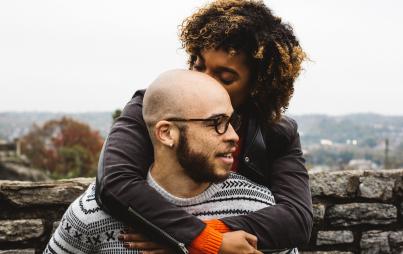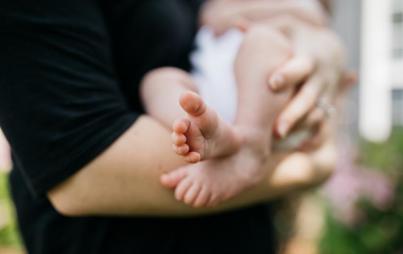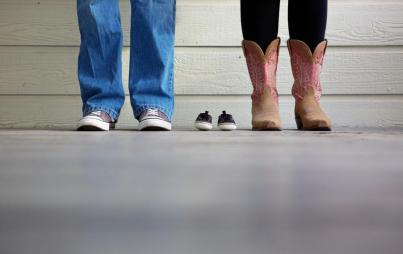
The subject of infertility is very private in our circles; it is just not something that is talked about in the open.
As an ultra-orthodox Hasidic girl, I always knew the way my life would pan out. The ultimate goal was to establish a home, be a good wife and mother and a devout Jew. It was what the Torah commanded us and what everyone did. Growing up, we played with dolls, re-enacting what we saw at home. The game we most loved to play was “house.”
I grew up, found my soulmate at age 18, and married three months later. I fully expected to become pregnant right away. The first month, the 30th day of my cycle came and went. My husband and I naively looked at each other and thought the same thing. “I think you should buy a pregnancy test” I whispered to him that night, dreaming of babies and tiny clothes. Two weeks later, we decided to buy the test.
Holding the test, I hurried to the bathroom. While waiting the required, longest five minutes of my life, I tried to gaze anywhere but the stick. Still not looking, I went to get my husband so we could find out together.
I started getting uncomfortable with casual conversation, as people would ask “so when did you get married?”. Without children, I didn’t feel complete. The void that is felt by infertile couples is magnified a thousandfold if you’re part of a community like ours.
We saw a very faint line. Bingo! That was exciting! Just married and already pregnant!
As we were on the way to moving across the ocean to live, we planned to go to the doctor there. By then, according to my calculations, I would be about six weeks pregnant.
I settled in overseas and made an appointment with my gynecologist. I remember him asking us how long we were married and I was embarrassed to tell him we were newlyweds.
The ultrasound showed nothing, but he assured me that it just might be a bit early. He drew blood and instructed me to call him for the results.
I called the next day, and he gently broke the news that I had never been pregnant.
“Huh?”
I was in disbelief. I had no idea what to make of this. Apparently, in our excitement, we had misread the pregnancy test and seen a line where there wasn't one.
This was the beginning of our journey with infertility. During that first year, I was still naive and bought a pregnancy test every time my period was late, until I realized that I was wasting my money.
After two years, we were officially childless and went to see a specialist. I was diagnosed with hypothyroidism. We thought things would be resolved with a small pill. My thyroid levels stabilized but my periods stayed very irregular. Further testing revealed PCOS, a condition that is known to cause fertility issues.
Our rollercoaster with infertility treatments began.
Our community is very child-centric. The Hasidic population shies away from birth control, and it’s very much the norm to be pregnant by the time you’re married for a year. Well, we were past the two-year mark. I felt it. I felt as though people were glancing at my midsection to check what was happening.
I started getting uncomfortable with casual conversation, as people would ask, “So when did you get married?” Without children, I didn’t feel complete. The void that is felt by infertile couples is magnified a thousandfold if you’re part of a community like ours. We kept hearing what a big mitzvah (positive commandment) it is to bring children into this world. The majority of a Hasidic woman's world revolves around her children. There are many ways to be fulfilled and many childless women have left their mark on their communities in different ways, but still, being childless as a Hasidic woman is not a comfortable experience.
Conversations became stilted. Our friends were talking about their kids’ antics and how sleep deprived they were. They did not want to make me uncomfortable, so they stuck to safe topics, but that didn’t help create deeper relationships. People were scared to tell me they were pregnant because they didn’t want to hurt my feelings. Didn’t they know that showing up unexpectedly in a maternity outfit was way worse? I kept telling my family that they were hurting my feelings way more when they DIDN’T tell me they were pregnant. After some time, they got the message and always informed me before donning maternity clothes.
You Might Also Like: On The Loss Of A Child And The Struggle To Make One
My husband has 11 siblings. He is the third in the family. It didn’t take very long for his siblings to get engaged one by one. Naturally, they became pregnant and had children. The toughest was the first child born to a couple married after us. As it kept happening, it did become a little easier.
However, I will never forget one birth. We had just gotten the devastating news that yet another treatment failed. I was barely holding on to my dignity while I was out that day when my husband called to tell me that my sister-in-law had a baby. That’s when I crumbled. My heart pinched, and the tears streamed endlessly down my face. It was too much. It honestly took me many years to even manage to smile at that child. Poor kid. It wasn’t his fault he arrived on the wrong day.
One of the most painful aspects of infertility was the knowledge that my sister might be the one to make my parents into grandparents. That was not a pill I was willing to swallow. She was four years younger than I and the day she might get engaged was rapidly approaching. I truly felt that this was something that might break me. I hoped that G-d would realize this and get me pregnant before she got married.
The subject of infertility is very private in our circles; it is just not something that is talked about in the open.
I didn’t even tell my parents what we went through, so the few friends I could confide in were priceless. One of my good friends and classmates also wasn’t getting pregnant. We would commiserate with each other, comfort each other when we went through yet another failure, and laugh at some thoughtless comments we got. It just made that painful journey a little less lonely.
It was challenging to deal with the assumptions people made. To some, it seemed like those of us who were childless were thought to have endless free time. Indeed, how could they know that we sometimes needed to be at the hospital at 6 am for bloodwork and scans? How could they comprehend the emotional toll this process takes on us? It is physically draining.
For five years, I felt like I didn’t belong. After four years, I didn’t have much in common with the newlyweds anymore, and my peers were busy with their growing families.
I felt like I was in the twilight zone; I didn't belong anywhere.
A few days before our fifth anniversary, I got the most beautiful present. When the clinic called to tell us we were pregnant, I couldn't stop shaking. Words can’t describe the emotions felt at that moment. That day, the world became more beautiful — the sun shone brighter, and the birds sang louder.
I was finally about to become a mother after five tumultuous years. I would be the one to make my parents into grandparents. My sister gave birth a few months after me.
My saga with infertility wasn’t over yet. My son was a precious gift, but I went through another four tough years to finally become pregnant with my daughter.
On the other side of this, I wouldn’t trade my experiences for anything because they made me a better person.
I gained so much — the sensitivity I developed for the childless, the appreciation I have of all the miracles it takes just to conceive a child, and, of course, the most significant gift of all — my kids.








